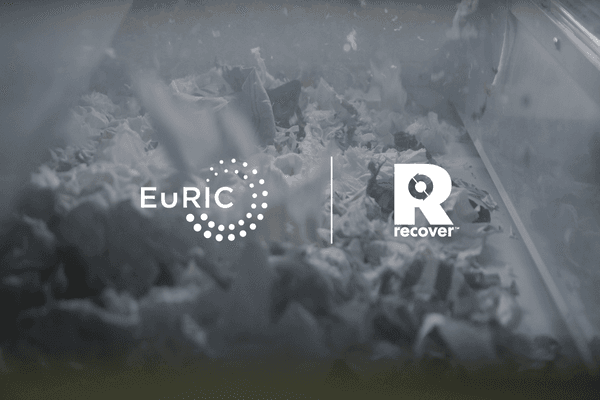Recover™ joins the American Apparel & Footwear Association
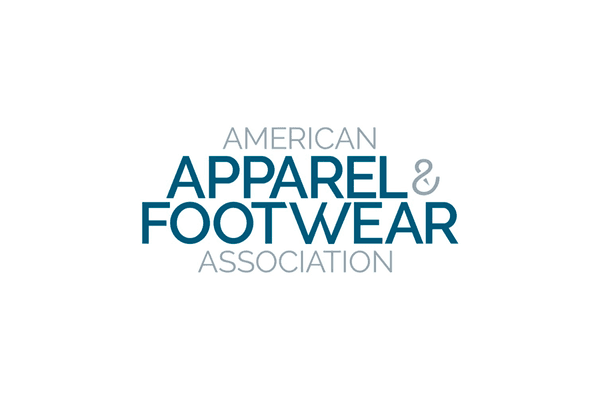
Site map
World Water Day is celebrated on March 22nd every year to promote the responsible use of water and access to safe water. This year, the day is dedicated to the theme of 'Water for Peace,' highlighting the importance of water in promoting global stability and prosperity. At Recover™, work is done year-round to bring sustainability to the fashion industry by utilizing innovative production techniques that reduce our water usage. Let's take a closer look at how we do it.
At Recover™, we use innovative technologies to create the longest fiber at the lowest environmental cost, helping the fashion industry to close the loop. We start by using textile waste from industrial production, which we cut into smaller pieces. Then, using minimal water, we treat the textile waste with an anti-static spray to prepare it for shredding. We shred the textile waste using an optimization formula that is proprietary and exclusive to Recover™. This process results in Recover™ fiber, which can be easily integrated into the supply chains of our Strategic Alliance Partners with a much lower water use than virgin equivalents.
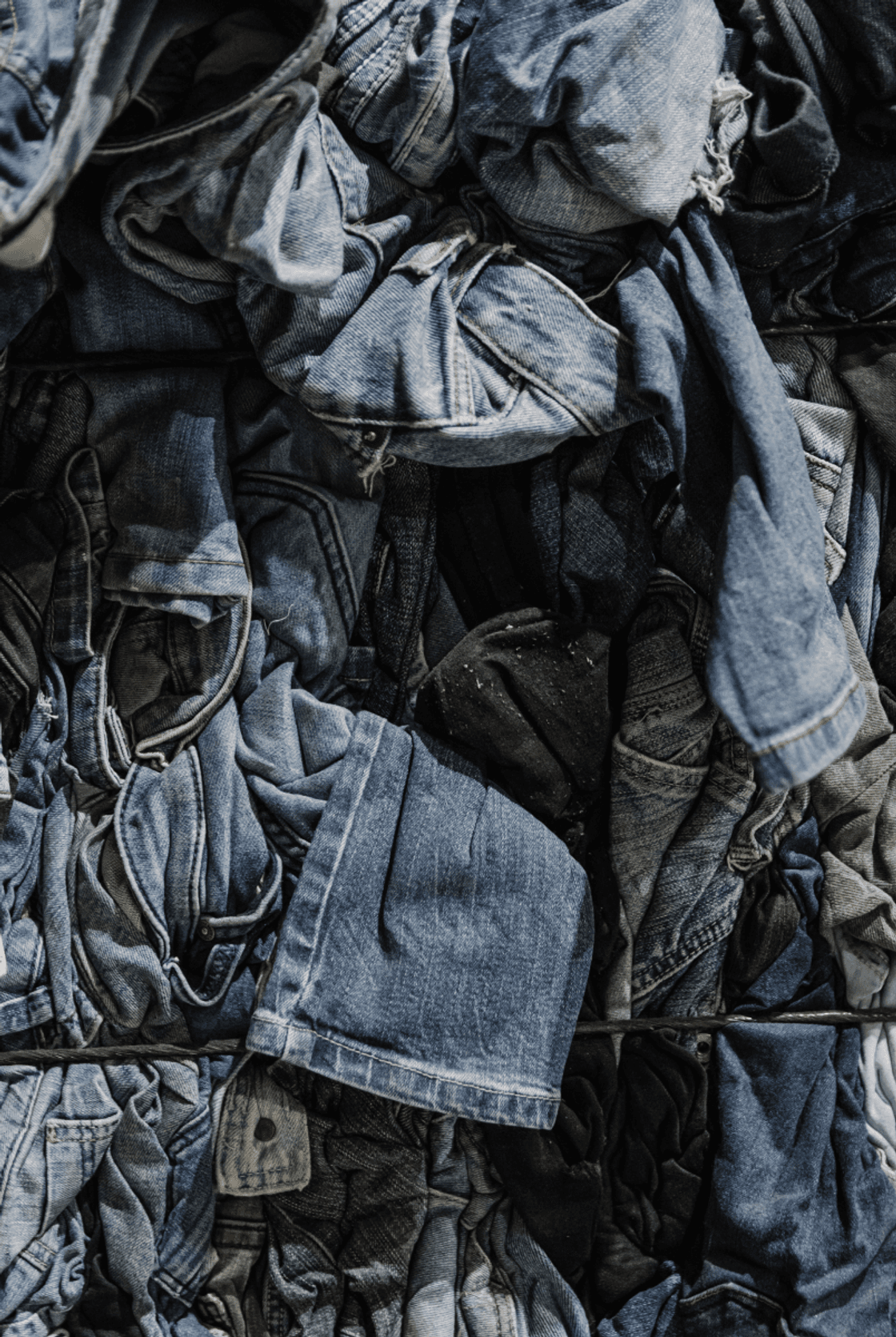

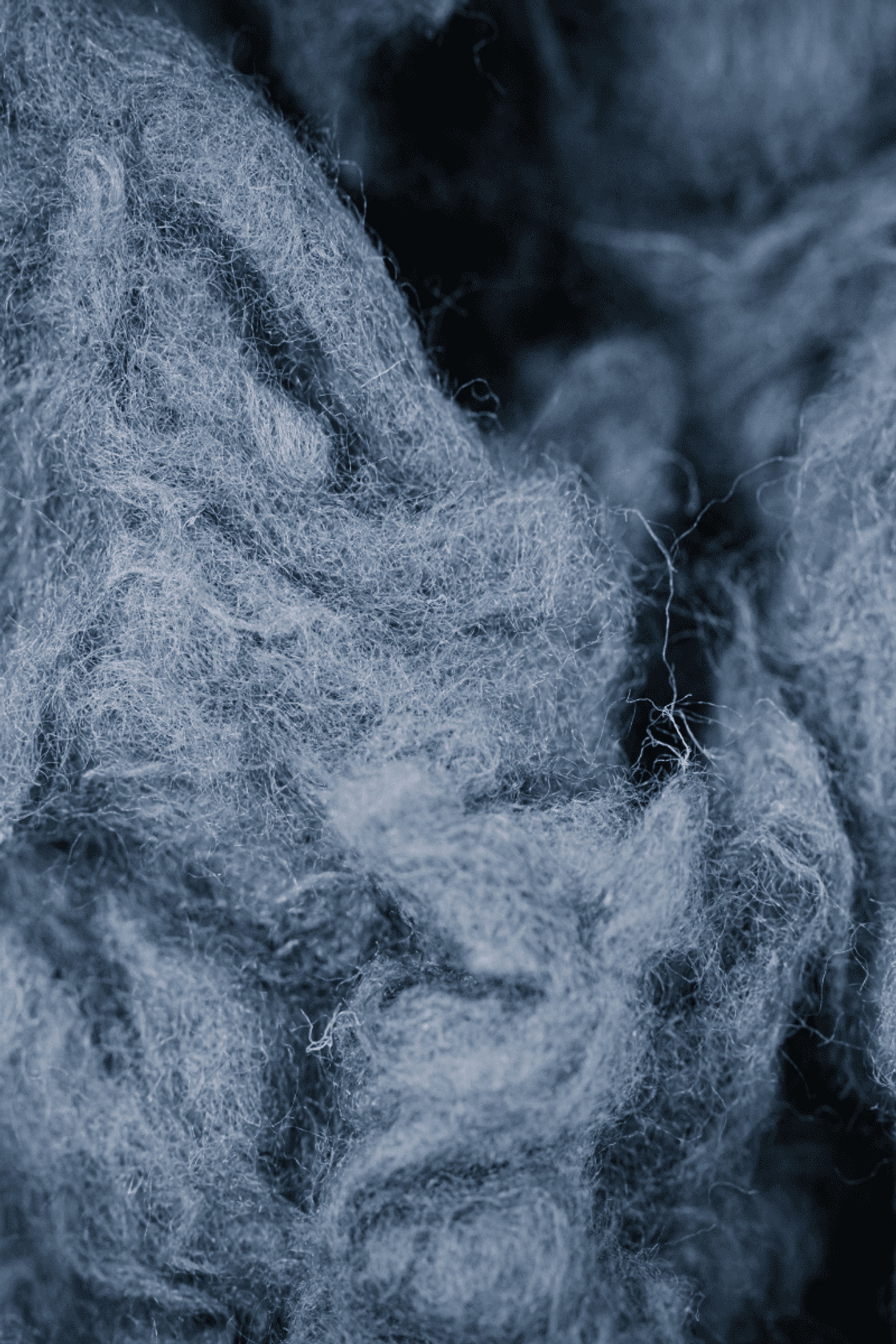
Our product lines are designed with sustainability at the forefront, resulting in significant water savings when compared to conventional alternatives. For instance, 1kg of RPure can save up to 2,116 liters of water, while 1kg of RBlue can save up to 1,196 liters of water compared to conventional cotton.
In 2022, the RCotton (RPure and RDenim) produced between our hubs in Spain, Bangladesh, and Pakistan, and the RColorBlend produced between our hubs in Spain and Bangladesh, saved up to 32 billion liters in water. This is equivalent to 12,960 Olympic-sized swimming pools. These savings were calculated using data from our Recover™ LCA Spain, verified by EcoReview.
Our commitment to sustainability goes beyond water conservation. We aim to become a zero-waste company by conserving all resources and adopting responsible production, consumption, reuse, and recovery of products, packaging, and materials.
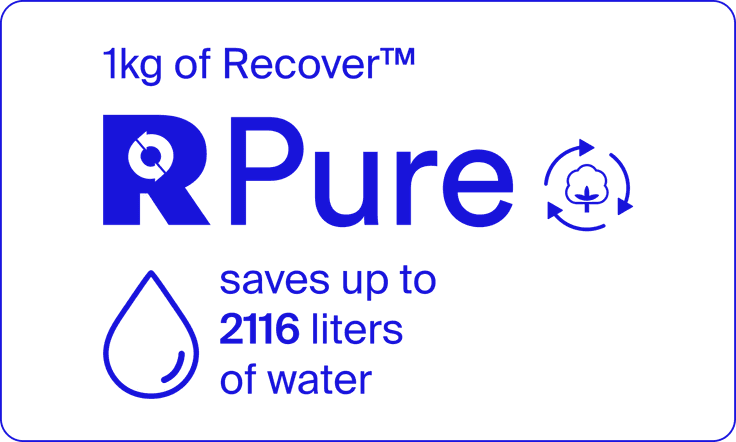
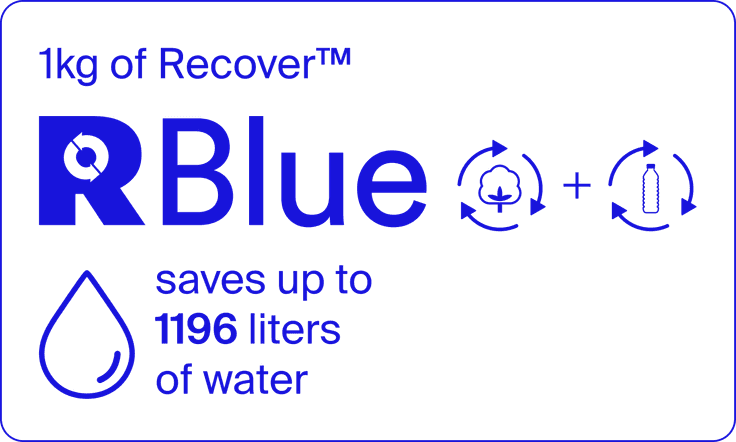
On average, in 2020, cotton required up to 1,900 liters of irrigation water (blue water) and up to 6,000 of rainwater (green water) to produce one kilogram on lint. [1] Although using global averages can be misleading because it does not reflect local reality (water use varies greatly in cotton cultivation depending on the regions), it does reflect the significant amount of water needed to grow cotton, like may other crops. One kilogram of cotton lint produces approximately one t-shirt and one pair of jeans. [2] Replacing part of the virgin cotton in garments with recycled alternatives can significantly reduce their water footprint.
It is well known that denim is one of the most pollutive textile categories. The highest water consumption in denim production is in the dyeing and finishing/washing stages. In recent years, the denim industry has been actively seeking sustainable solutions to reduce water usage, with Recover™ is one of the preferred partners on this journey.
In 2023, we launched an innovative recycled denim capsule collection, REICONICS, with Evlox and Jeanologia. It includes a range of premium denim fabrics developed by Evlox and a total of 14 final garments that were exhibited at Premiere Vision . Each piece in the collection displays a variety of finishes generated using technology by Jeanologia, reducing water and energy consumption, and eliminating damaging emissions and discharge. Just one jacket in the REICONICS collection, using 32% Recover™ recycled fiber and Jeanologia finishing technology, saves up to 760 liters of water; compared to a jacket made with virgin cotton and treated with traditional finishing techniques.*
We also have a long-standing collaboration with DL1961, a global premium denim brand based in New York. Each DL1961 piece is made with at least 20% Recover™ recycled fiber and is crafted and hand-finished using waterless laser, further decreasing water waste.
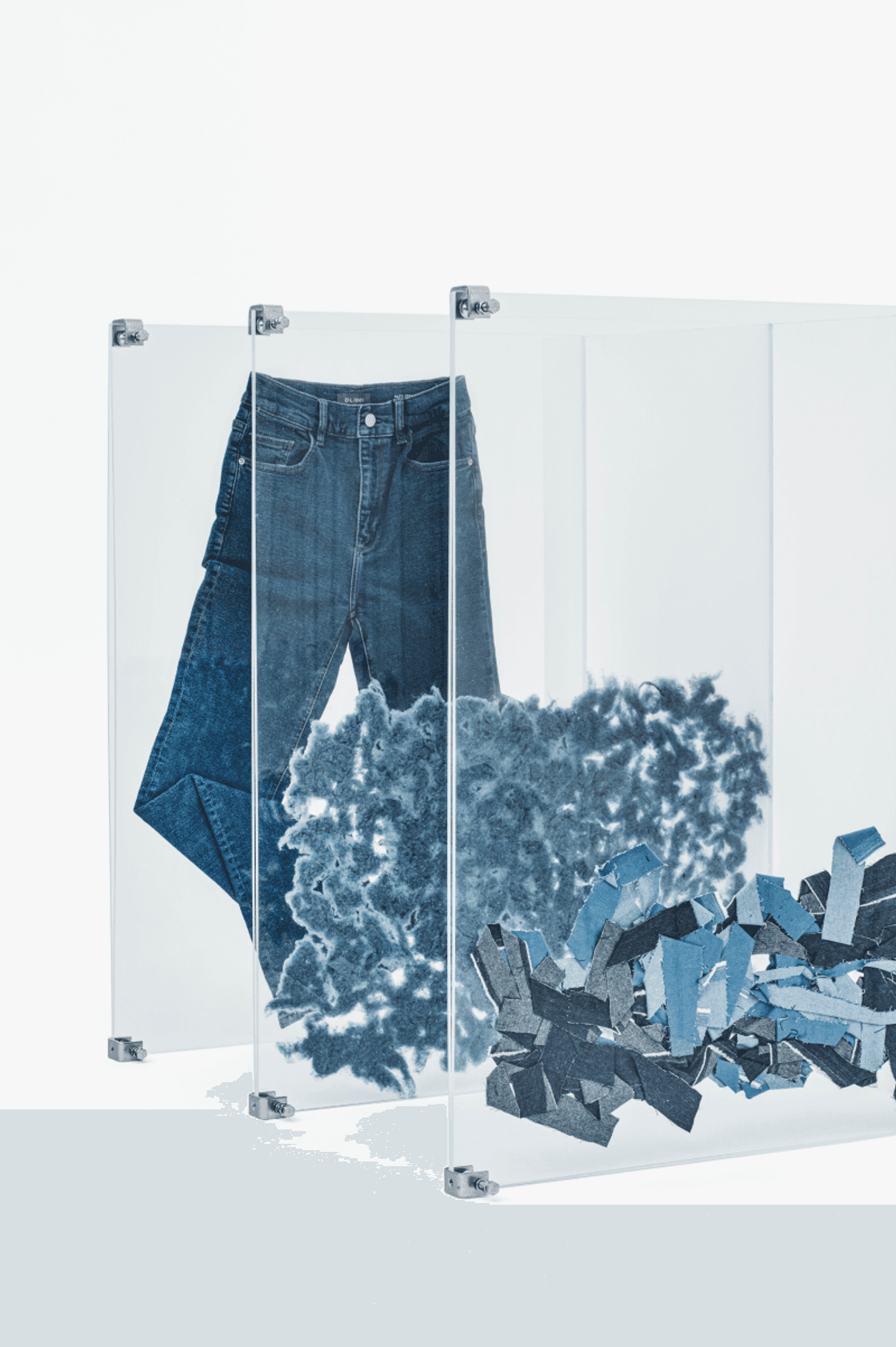


Sources
[1] International Cotton Advisory Committee (2021, June), ICAC cotton data book 2021.
[2] Transformers Foundation (2021), Cotton: A Case Study in Misinformation.

